41 citations,
May 2020 in “Frontiers in immunology” Hidradenitis suppurativa might be a type of autoinflammatory skin disease.
 December 2023 in “Journal of Cosmetic Dermatology”
December 2023 in “Journal of Cosmetic Dermatology” Baricitinib effectively and safely improves hair growth in patients with severe alopecia areata.
10 citations,
January 2019 in “Indian Journal of Dermatology” Weekly azathioprine pulse is a better alternative to corticosteroids for treating alopecia areata due to fewer side effects.
 October 2024 in “International Journal of Research in Dermatology”
October 2024 in “International Journal of Research in Dermatology” Tofacitinib is a promising and safe treatment for moderate to severe alopecia areata.
 April 2024 in “Expert opinion on investigational drugs”
April 2024 in “Expert opinion on investigational drugs” JAK inhibitors are safe and effective for treating moderate-to-severe alopecia areata.
 5 citations,
January 2022 in “Dermatology Reports”
5 citations,
January 2022 in “Dermatology Reports” Tofacitinib treatment for hair loss may worsen acne.
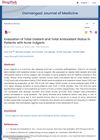 March 2022 in “Osmangazi tıp dergisi”
March 2022 in “Osmangazi tıp dergisi” Acne patients have higher levels of oxidative stress, but it's not clear if it causes or results from acne; antioxidants might help treat acne.
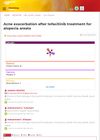 October 2021 in “Dermatology Reports”
October 2021 in “Dermatology Reports” Tofacitinib, a hair regrowth treatment, may worsen acne.
 September 2023 in “PubMed”
September 2023 in “PubMed” Baricitinib is a relatively safe and effective treatment for severe alopecia areata.
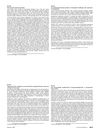 7 citations,
January 2011 in “Journal of The American Academy of Dermatology”
7 citations,
January 2011 in “Journal of The American Academy of Dermatology” Most women with hyperandrogenism first show acne, and skin conditions like hirsutism and acanthosis nigricans are good indicators of the condition.
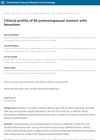 April 2019 in “International Journal of Research in Dermatology”
April 2019 in “International Journal of Research in Dermatology” Most women with hirsutism have mild symptoms and often experience acne, menstrual irregularities, and obesity.
 165 citations,
February 1994 in “Fertility and Sterility”
165 citations,
February 1994 in “Fertility and Sterility” Flutamide is more effective and has fewer side effects than spironolactone for treating hirsutism.
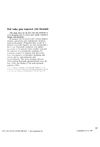 November 1990 in “Inpharma weekly”
November 1990 in “Inpharma weekly” Flutamide effectively treated hair growth and related symptoms in women, with common side effects like dry skin and hot flushes.
 130 citations,
September 1990 in “Journal of the American Academy of Dermatology”
130 citations,
September 1990 in “Journal of the American Academy of Dermatology” Flutamide effectively reduced excessive hair growth and improved related symptoms in hirsutism patients without significant side effects.
 3 citations,
March 2020 in “International Journal of Dermatology”
3 citations,
March 2020 in “International Journal of Dermatology” Tildrakizumab showed limited effectiveness in treating chronic alopecia areata in a small group of patients.
 1 citations,
October 2012 in “Gynäkologische Endokrinologie”
1 citations,
October 2012 in “Gynäkologische Endokrinologie” The document concludes that proper diagnosis and individualized treatment are crucial for managing androgenization in women effectively.
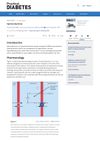 February 2024 in “Practical Diabetes”
February 2024 in “Practical Diabetes” Spironolactone helps reduce hospital visits and death from heart issues, lowers blood pressure, but has unclear effects on heart failure with normal heart pump function and can cause high potassium and breast enlargement in men.
 1 citations,
October 2023 in “Dermatology and therapy”
1 citations,
October 2023 in “Dermatology and therapy” Some treatments for severe hair loss work but often have side effects, with baricitinib showing the most promise.
 130 citations,
February 2018 in “Journal of Investigative Dermatology”
130 citations,
February 2018 in “Journal of Investigative Dermatology” Tofacitinib may help treat severe hair loss, but more research is needed.
 April 2024 in “Frontiers in pharmacology”
April 2024 in “Frontiers in pharmacology” Brepocitinib 30mg is most effective for moderate-to-severe alopecia areata, but ritlecitinib 50mg may offer a better balance of safety and effectiveness.
 May 2011 in “Value in Health”
May 2011 in “Value in Health” CP-690,550 significantly reduced itching in patients with moderate-to-severe plaque psoriasis.
 January 2024 in “Journal of Crohn's and colitis”
January 2024 in “Journal of Crohn's and colitis” Janus Kinase inhibitors are effective and have an acceptable safety profile for treating moderate to severe Ulcerative Colitis.
 April 2024 in “Frontiers in medicine”
April 2024 in “Frontiers in medicine” Alopecia Areata significantly lowers quality of life and current treatments are inadequate, highlighting a need for better therapies and standardized treatment protocols.
 8 citations,
June 2022 in “Frontiers in Medicine”
8 citations,
June 2022 in “Frontiers in Medicine” Both individual and combined treatments of tofacitinib and corticosteroids can help regrow hair in moderate-to-severe alopecia areata, but ongoing treatment may be necessary.
 2 citations,
January 2014 in “Springer eBooks”
2 citations,
January 2014 in “Springer eBooks” Polycystic Ovary Syndrome (PCOS) often leads to severe acne, and lifestyle changes and hormonal treatments can help manage it.
November 2022 in “Clinical, Cosmetic and Investigational Dermatology” The combined treatment for hair loss is effective, easy to use, and has mild side effects.
 43 citations,
November 2018 in “Nature Communications”
43 citations,
November 2018 in “Nature Communications” Genetic variations affecting skin structure play a key role in severe acne.
 12 citations,
May 2017 in “Medicine”
12 citations,
May 2017 in “Medicine” Oral isotretinoin was recommended for a 21-year-old woman with severe acne.
 12 citations,
September 2003 in “Current paediatrics”
12 citations,
September 2003 in “Current paediatrics” Early treatment of acne is important to prevent scarring and improve appearance, using medications that can have side effects.
 151 citations,
December 2004 in “Annals of the New York Academy of Sciences”
151 citations,
December 2004 in “Annals of the New York Academy of Sciences” Congenital Adrenal Hyperplasia is a genetic disorder with two forms, causing symptoms like early puberty and severe acne, but can be identified through screening and treated with glucocorticoids.


























